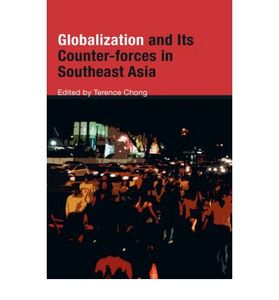Civil society, accountability and governance in Thailand: a dim case of participatory democracy
Maisrikrod, Surin (2008) Civil society, accountability and governance in Thailand: a dim case of participatory democracy. In: Chong, Terence, (ed.) Globalization and its Counter-forces in Southeast Asia. Institute of Southeast Asian Studies, Singapore, pp. 97-116.
![[img]](https://researchonline.jcu.edu.au/7357/2.hassmallThumbnailVersion/7357_Maisrikod_2008_Book_cover.jpg)
|
Image (JPEG) (Book Cover)
- Cover Image
Download (21kB) |
|
|
PDF (Published Version)
Download (848kB) |
Abstract
This chapter assesses the relationship between political-administrative accountability, civil society and a new form of governance in Thailand, following the implementation of the new constitution in 1997. The chapter begins with the historical Context, especially the democratic transition and consolidation that has taken place in the country since 1973, within which the notion of accountability and transparency - or good governance - has emerged as a dominant political discourse in recent years. Secondly, the chapter assesses the extent to which the new system of governance has been developed in light of the government led by Prime Minister Thaksin Shinawatra since 2001. It is argued that the issue of creating a new system of governance - a more responsive, more transpareny and more accountable governance - cannot be separated from the issue of democratic consolidation. Thirdly, it notes that globalization provides an impetus for the rhetoric of good governance and democracy in Thailand. But as globalization has at least two parts: firstly, market forces, or the material, with key beneficiaries being capitalisrs; and secondly, the ideational or "good governance" - accountability and transparency - which to a considerable degree is a civil society-led counter-force to the increasing corporatization of Thai politics. In Thailand, the pro-market forces and businessmen-politicians are more dominant, resulting in the erosion of accountability and transparency. This chapter thus hypothesizes that the new system of governance in Thailand is not being achieved as envisaged by the constitution because the capitalist class (or rather a key section of it), in collaboration with more conservative/repressive state agencies, especially the police and the Interior Ministry officials - have captured the electoral process, the parliament, and thus the government. These new political forces are less interested in advancing democratic/participatory governance, but more in monopolistic capital accumulation and, at least rhetorically, the country's international competitiveness. At the same time, the Thaksin government has attempted to curtail the activity of the middle class-based civil society groups by, among other things, rallying its support from the rural areas based on the ruling party's populist policies. So, instead of participatory governance, Thailand is now developing a "corporatized governance". The issue of accountability and transparency is now therefore quite problematic, if not totally sidelined.
| Item ID: | 7357 |
|---|---|
| Item Type: | Book Chapter (Research - B1) |
| ISBN: | 978-981-230-488-9 |
| Additional Information: | This publication does not have an abstract. The first paragraph of the Introduction is displayed as the abstract. |
| Date Deposited: | 17 Jan 2010 23:19 |
| FoR Codes: | 16 STUDIES IN HUMAN SOCIETY > 1606 Political Science > 160603 Comparative Government and Politics @ 50% 16 STUDIES IN HUMAN SOCIETY > 1605 Policy and Administration > 160509 Public Administration @ 50% |
| SEO Codes: | 97 EXPANDING KNOWLEDGE > 970116 Expanding Knowledge through Studies of Human Society @ 100% |
| Downloads: |
Total: 2513 Last 12 Months: 186 |
| More Statistics |




